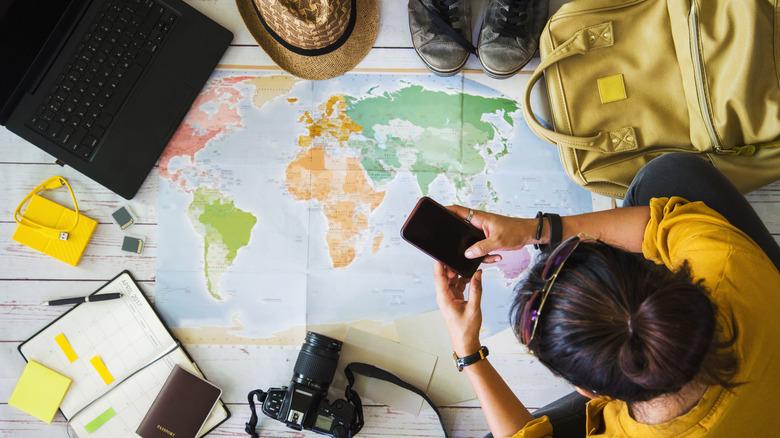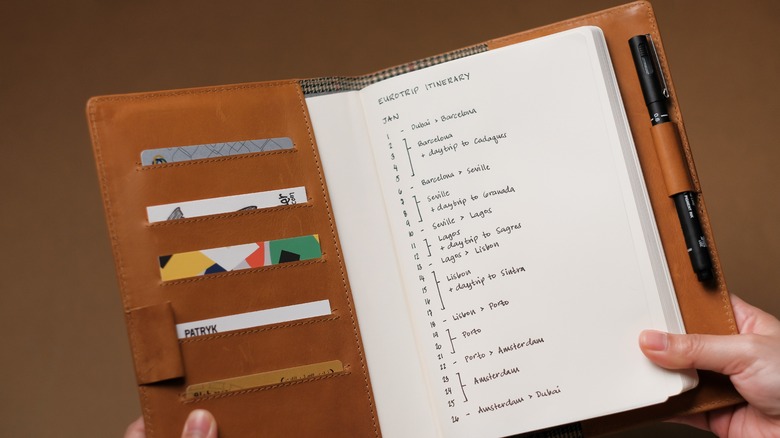Here's Why Planning Every Little Detail Of Your Trip Is Actually A Bad Idea
Many of us live a very regimented life. We create schedules, hit our marks, plan for tomorrow, create more schedules, sometimes miss our marks, and try it all again. From weekly meal planning to daily work meetings, our day-to-day lives are dictated by calendars, logistics, and completing tasks. Taking respite from this routine is the fundamental reason we take vacations.
Vacations allow us to breathe, have fun, and experience something outside the bustle and routine of everyday life. While some trip planning is essential (and fun), overplanning can seriously jeopardize the enjoyment of a trip.
Tightly-wound itineraries can quickly turn into self-prescribed marching orders, and when you're always thinking about the next itinerary item, you're unable to fully absorb the present. Similar to normal life, your trip now relies on schedules, tasks, and logistics. By overplanning, you don't leave room for surprises, spontaneity, or memorable in-between moments — the special parts of a vacation.
Overplanning creates stress and disappointment
To be fair, it's tempting to plan every detail of a vacation when time isn't on your side. Vacations, by nature, are temporary and often (always) shorter than we'd like. We tend to overcompensate for the time crunch by being as efficient as possible.
Although most vacations involve bucket-list activities or sites to see, try separating your itinerary into must-dos and could-dos. Plan a day around one or two main activities, then play jazz with the rest of your time. Maybe you'll see that or go there; maybe you won't. Let your mood and present situation dictate your plans. Also, it's good to remember that all planned activities are merely plans, and circumstances can change quickly.
When your itinerary is loose, you can pivot without feeling too stressed or disappointed. According to scientific studies, vacations can lower your stress level, blood pressure, and risk of stroke. But that's only true if your vacation doesn't stress you out. And discovering exciting things to do while at your destination is part of vacation fun. Walk around and talk with locals. Their itinerary suggestions will typically be more insightful and helpful than anything you could research and plan.
Overplanning limits our experience
When we map out every detail of our vacation, we box ourselves into both a schedule and mindset. Hopscotching quickly from one itinerary item to another, we stay focused on what we did or are about to do. This rigidity creates an ever-present clock that suggests we can't slow down. Vacations should be experiences, not a series of tasks to be completed.
Seeing famous landmarks and participating in destination-specific activities can be important parts of a vacation. Why else choose the vacation spot? But the activities, landmarks, and surroundings are only a backdrop to your overall vacation experience.
Vacation plans are a bit worthless if you can't slow down. Whether it's speaking with your partner, playing with the kids, watching a sunset, getting lost while exploring, or savoring a meal, vacation success is typically measured by the experiences we have during the in-between moments. Although they're impossible to plan, these moments need space to exist.


